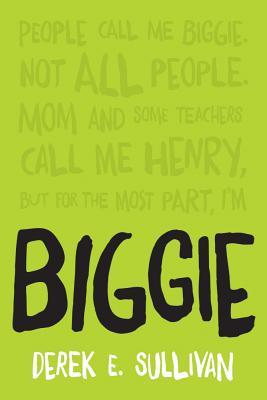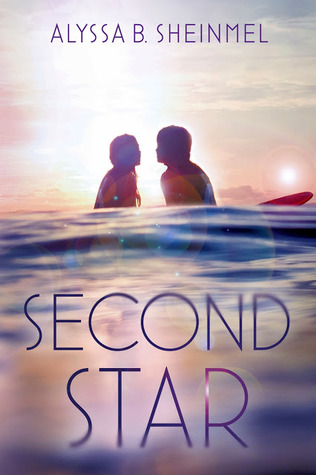Rebecca by Daphne du Maurier
Publisher: BBC Audiobooks (abridged)
Publication date: 1995 (originally published in 1938)
Length: 3 hrs, 18 min
Source: Audiobook from Library
For:
Classic Double Challenge
New Girl by Paige Harbison
Publisher: Harlequin Teen
Publication date: January 2012
Pages: 320
Source: e-book from
NetGalley
For:
Classic Double Challenge
Summaries:
Rebecca (R):
When Mrs. de Winter arrives at her new home after a whirlwind romance with Maxim de Winter, she is immediately haunted by the presence of Maxim's first wife, Rebecca. She seems to be everywhere, from the mysterious beach house to the menacing presence of her personal maid Mrs. Danvers. Will Rebecca rule Manderley forever, even from the after life or will she ever leave Maxim to his new wife?
New Girl (NG):
When her parents send her to an elite private school in New England for her senior year, the "new girl" as everyone calls her is definitely not happy. Not only did she have to leave all her friends behind, but she is taking the place of the larger than life Becca, a student who mysteriously disappeared. Despite her best efforts to make it through the year and enjoy her time, Becca overshadows her every interaction, from her former boyfriend Max to her creepy best friend, Dana. Will she ever feel like she can live her life free from Becca or will a return from wherever she went oust her from this new life forever?
The characters:
I like how in NG, Harbison incorporated nearly all the important characters from the original. Especially the creepy obsessed roommate, Dana as Mrs. Danvers. The two boys that Becca toyed with were also really well drawn - Max and Johnny (aka Jack Favel from the original). Becca herself, I think, is the most different between the two books. She is a lot more sympathetic in NG, though we see a lot more of the vile things she does (in vivid detail, unfortunately). There are quite a few chapters from her viewpoint throughout the book, which I think is both good and bad. I think this eliminates the mysterious aspect of the original, but also allows us greater understanding of the enigmatic Becca. I suppose when you're doing a retelling, you can't truly recreate that suspense, so you go other directions. But I think it is what keeps this one from being really good. It doesn't have the same feel, because we know quite early on just what Becca is like and who she really is.
The story:
NG keeps a lot of those stay with you images: the beach house, the costume party, the creepy display of Rebecca's things *shudders*, but it definitely changed the ending. There is no trial and there is no reversal of our opinions of Rebecca. We see exactly what she does from the beginning and where she ends up and how, because we are told from her viewpoint. I like a good retelling that can change the story, but also keep those most important scenes from the original. This one nails many of those scenes, but I loved the ending from Rebecca because it is so surprising and suspenseful. Not to mention those last lines - just not an image you forget easily!
_____________________________
Things I Liked about R:
The book has just the right amount of mystery and hints of creepiness that you are sucked in from the first, trying to figure out what it was about Rebecca that made everyone love her. And Mrs. Danvers has to be the most disturbing person in all of fiction. I love the changes that our main character experiences over the course of the book, mainly because she tends to grow up and get a spine already. She's so annoyingly timid at first that you want to smack her, but she does change. It's almost like a coming of age story for her. This is just truly one of the best Gothic books set in such a vivid place you almost feel like you are at Manderley. And like Rebecca is looking over your shoulder. And oh, the ending! I listened to this one on audio and was unhappy to discover that it was an abridged version, which is too bad because the narrator, Harriet Walter, did a really great job with the voice of Mrs. de Winter. I still need to do a full reread, though, because this is just such a great book!
Things I Didn't Like about R:
The main character is just so timid and ridiculous, she lets everyone walk all over her! She did it to such extremes, sometimes, that I wanted to reach in and give her a good shake. Also, Maxim is not at all attractive. I can see how he'd be charming to her, but he just seemed aloof and kind of like a jerk. Interesting how I don't particularly like any characters, but this is such an unforgettable book! The image of that costume party has always stuck with me, even years after my first read. Good mystery, good creepy tale.
_____________________________
Things I Liked about NG:
Rebecca is a glorious story that made me so excited for a revamp. It was a clever idea to set it in a New England boarding school with a disappeared girl who left a huge legacy behind. The main character is confused and shunned and has no idea why all of this happens to her. As I mentioned, I thought a lot of iconic scenes from the original were really well done. They translated well and kept enough of the orignal but with a delightful new flavor to make them interesting. She definitely made the story her own, since there were numerous changes and differences. I liked our main character slightly more than in the original, because she isn't quite such a sucker. We get to know Becca very well and not just through what other people thought of her, which was an interesting change for sure.
Things I Didn't Like about NG:
It definitely didn't hold the creepiness or fabulous setting details of the original. With the way the story is told from Becca and the new girl's perspectives, there was little to no mystery about Becca's relationship with Max and Johnny. As I mentioned above, one of the things I liked most about the original was the ending, which was changed. This new version spells everything out and makes it rather convenient for all involved, especially Max. I didn't like Dana's character either; it didn't make sense the way she was portrayed, her motivations, and the things she said/did. I think it was a good idea, a good try, but lacked most of what made the original tale so interesting. Not to mention it was so full of swearing, mature romantic garbage, and rampant drug use I almost had to stop reading. (Speaking of which, where on earth were the adults at this boarding school? Yes, I'm sure stuff like this happens, but to this level and no one figures it out? Unbelievable.) Too much described instead of implied. Definitely for older teens.
Read-alikes:
Jamaica Inn by Daphne du Maurier (for R)
Prep: A Novel by Curtis Sittenfeld (for NG)
Private series by Kate Brian (for NG)
BOOK CONTENT RATINGS for R:
s-factor: !
a few mild invectives
mrg-factor: none
v-factor: ->
not described, but it is rather disturbing at times
Overall rating: *****
_____________________________
BOOK CONTENT RATINGS for NG:
s-factor: !@#$
numerous f-bombs frequently scattered
mrg-factor: XXXX
quite a lot of stuff goes on, some very descriptive
v-factor: ->
just a little bit, also has a LOT of underage drinking and drug use
Overall rating: **
Whew! If you made it through that, congrats. What do you look for in a retelling?
If you buy through my Amazon linkage, I will get a very small percentage





















































